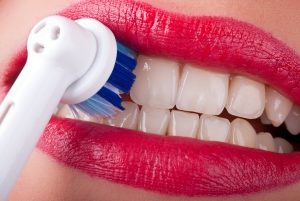Periodontal Health in Women

Periodontal health refers to the health of the gums and gum tissues. While both men and women are susceptible to developing gingivitis, gum disease, and other periodontal problems, there are certain risk factors that are unique to women. If you’re at risk for developing gum disease, visit a family dentist near Glen Ellyn for regular dental care and oral health screenings. Here is some valuable information about the factors that affect women’s periodontal health.
Puberty and Menstruation
At the onset of puberty, the increase in the body’s production of hormones like estrogen and progesterone causes increased blood flow to the gums. This makes the gums much more sensitive, causing them to be more susceptible to infection and disease. It also makes the gum tissue more sensitive to foreign substances like food and plaque. The gums may become inflamed, red, and tender. Menstruation can trigger a condition called menstruation gingivitis. The symptoms include bleeding gums that are red and swollen and sores on the insides of the cheeks.
Pregnancy
Hormonal changes and fluctuations that occur during pregnancy can also make women more susceptible to gingivitis and gum disease. Pregnant women who suffer from periodontal disease are much more likely to give birth to a baby that is premature, or that has a low birth weight. Like any other infection, an infection of the gums can cause other health problems that can affect a pregnancy. When periodontal disease is untreated, it can lead to infections that spread through the blood to other parts of the body, increasing the risk of cardiac disease and stroke.
Menopause and Post-Menopause
Menopause instigates many hormonal changes and health changes. Women who are going through menopause, or who are post-menopause, may suffer from mouth discomfort. This can include dry mouth, pain and burning in the gum tissue, and an altered sense of taste. Some women may also experience menopausal gingivostomatitis. The symptoms of this condition include gums that are dry, shiny, and that bleed easily. The color of the gums can range from very pale, to deep red.
